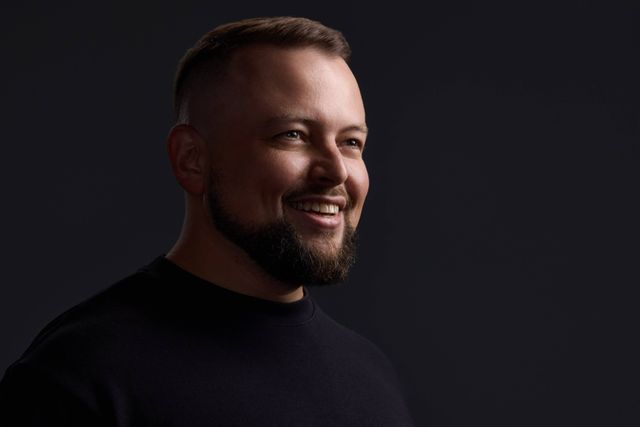By Shawn Tripoli, TimesLA, July 4th, 2025
Evgeny Kovalev is one of those rare leaders who not only talks about the future but systematically builds it. With over 15 years of experience in digital transformation and large-scale telecom projects, including his role as Director of B2B Digital Development at Beeline, one of the largest and most technologically advanced telecom operators in Russia with tens of millions of clients and a complex digital infrastructure, he now leads a new chapter. Today, he is the founder of the AI startup Neuroiam Inc. in the U.S., where he is designing a product of the future: tools that use artificial intelligence to help people unlock the strongest sides of their personalities.
Evgeny, you spent more than 15 years in the telecom industry. What was the turning point on your path from corporate leader to founder of a tech startup?
The transition was a natural continuation of an inner calling: I wanted to build not just digital products, but ecosystems where technology helps unlock human potential. At Beeline, we carried out large-scale digital transformations, but entrepreneurship gave me the freedom to go deeper — into meaning, values, and long-term impact. In a way, I followed my own advice. Our proprietary methodology for identifying individual strengths showed a pronounced tendency toward entrepreneurship in my own profile. I realized that I had always been an entrepreneur within corporations: launching billion-dollar products, leading transformation teams, and taking on projects that no one believed in. At some point, I decided: if not me, then who would be the proof of how effective our method really is?
While working at one of the country’s leading telecommunications companies, Beeline, you led numerous large-scale projects. Which one do you consider the most significant, and why?
For me, the most important project was building the B2B Online division from the ground up. Beeline is one of the largest telecom operators in Russia, known for its high standards in digital solutions. Leading a transformation project in such an environment means constantly facing complex challenges, especially in the corporate segment, where processes are intricate, and systems are deeply integrated and often outdated.
In this context, we created an innovative unit from scratch that brought together customer research, product development, and business process reengineering under one roof. A team of 75 specialists worked within a complicated digital landscape, where dozens of legacy systems and interfaces made it difficult to deliver a smooth and efficient customer experience.
As a result, we achieved end-to-end digitalization of B2B sales: we launched a new personal account interface, fully moved the onboarding process for mobile and fixed-line services online, and automated all key stages of the sales funnel. The outcome: 70% of deals began to be processed online, and the connection time dropped from 7 days to less than 5 minutes. This case became a personal benchmark for me, a proof that true transformation is possible even within a large, slow-moving organization if you’re willing to rethink how customer interaction works at its core.
After many years in the telecom industry and leading large-scale digitalization projects, you launched an AI startup in an entirely new field — human potential management. What sparked the idea for Neuroiam? Was it personal experience, research, or market demand?
After many years in telecom and delivering complex digital projects, I realized that the core challenge I consistently faced was unlocking people’s potential and building teams capable of tackling the most difficult tasks. It wasn’t just about finding individuals with the right hard skills, it was about ensuring maximum compatibility and efficiency within the team. In fact, the right team often proved to be more important than the product itself.
This insight aligns closely with the conclusions of Jim Collins and his research team in the book “Good to Great”, which emphasizes that truly exceptional results come from strong, cohesive teams, not from a single leader.
Over time, by deeply studying group dynamics, exploring various personality typologies, and refining team-matching approaches, I developed a comprehensive methodology for building high-performing teams. I first put this approach into practice at Beeline, where its success confirmed its real-world effectiveness. Today, through Neuroiam, my goal is to help other companies and top executives overcome the challenges of assembling and managing strong, cohesive teams while ultimately contributing not only to their own success but also to the broader growth of the economy.
Neuroiam is truly a unique platform with hardly any equivalents on the market. How would you personally define its main advantages and key capabilities?
Neuroiam is an innovative AI-driven service designed to help entrepreneurs and creative professionals unlock the strengths of their teams, plan career paths, and build harmonious environments. Based on our proprietary methodology, validated by over 5,000 satisfied clients, Neuroiam provides deep and objective insights into each individual’s potential and how they interact within their teams. In this way, Neuroiam not only helps companies avoid conflicts and reduce stress but also significantly boosts team performance by transforming groups into cohesive, well-functioning systems.
Neuroiam uses advanced technologies to gain deep insights into human potential. Could you explain how your algorithm works, what data it relies on and which analytical methods are applied?
We brought a specialist methodologist onto our team who has been working in this field for over 10 years. He developed a methodology for identifying individual strengths based on speech semantics and has revealed the strengths of more than 5,000 people worldwide. He also founded a school to teach this method. Additionally, we have an experienced psychologist with 10 years of practice who helped develop a method for detecting signs of depression and burnout.
Thanks to this expertise, we can now accurately identify each employee’s strengths, psychological state, values, communication style, and potential risks of conflict within the team.
This enables entrepreneurs and managers to obtain comprehensive information about candidates before hiring, ensuring they will fit well with the team. It also facilitates effective task delegation aligned with individual strengths and helps prevent potential conflicts and stressful situations.
Moreover, the platform integrates cutting-edge solutions such as AI coaching and an intelligent task tracker, which assist leaders in promptly identifying and resolving emerging issues, maintaining productivity and a positive team atmosphere. All these features combined make Neuroiam a powerful tool for creating a sustainable, flexible, and productive work environment.
Currently, we can with 100% accuracy identify all key indicators through a 1.5-hour interview with one of our experts. However, by the end of this year, we expect to complete development of an automated AI-based algorithm, which will significantly expand our capacity to test multiple teams at scale.
Given the uniqueness and innovative nature of Neuroiam, what early successes have you achieved, and how is the market responding to your platform?
We’re currently introducing the platform to our first users and we’re already receiving overwhelmingly positive feedback. Clients say that Neuroiam’s reports feel more like a medical study or genetic analysis: they shed light on internal processes that had previously gone unnoticed. This allows teams to clearly see the real reasons behind conflicts and ineffective collaboration.
Thanks to these deep insights, clients gain a clear understanding of what steps to take to bring their teams to a new level of productivity and cooperation. They begin to recognize and unlock the potential of each individual, freeing up their own energy and focusing on strategic goals, rather than constantly putting out fires or dealing with internal tensions.
You’ve actively used the Jobs-to-Be-Done and Growth Hacking approaches in corporate projects. How did you apply these methodologies at Beeline, and how have they carried over into your work on Neuroiam?
At Beeline, we used Jobs-to-Be-Done to understand the real tasks and goals of our corporate clients, and Growth Hacking to rapidly test potential solutions. This approach helped us shift over 70% of B2B sales online, reduce connection times from several days to just minutes, and drive significant revenue growth in the B2B segment.
At Neuroiam, I’ve applied these methods from day one. JTBD keeps our focus where it matters — not on technology for technology’s sake, but on people’s deeper motivations: the desire to be understood, recognized, and fulfilled. Growth Hacking brings the momentum we need: we test hypotheses quickly, build iterative product cycles, and stay laser-focused on what truly delivers value to the user.
In which industries do you see the greatest potential for implementing Neuroiam, and why?
I see the greatest potential in HR and corporate learning, especially within tech and creative sectors, where there is already strong demand for precise, personalized employee development tools. Education and career counseling are also promising directions, as they require a deep understanding of individuals’ unique strengths and motivations. These industries are open to innovation and are actively seeking ways to boost performance through a deeper understanding of human potential.
Neuroiam is already setting new standards in the HR services market. How do you see its impact on the industry today, and what key changes is the platform bringing to talent management practices?
Neuroiam is already beginning to transform the HR space by offering a fundamentally new approach to human potential development. Instead of focusing solely on competencies, we emphasize deeper thinking patterns and the unique strengths of each team member. This allows companies to recognize and nurture talent that previously went unnoticed.
The platform helps organizations move away from one-size-fits-all evaluations and toward personalized growth and motivation strategies, significantly increasing team engagement and performance. Our clients are already reporting that Neuroiam accelerates onboarding and employee development, while also fostering a culture of continuous learning and innovation.
We’re proud to be part of this transformation, that not only optimizes HR processes, but also redefines the relationship between humans and technology, making it more meaningful and deeply human-centered.
Which skills from your corporate career have proven most valuable in launching an AI startup in the U.S.?
My experience at Beeline laid a strong foundation for launching the AI startup Neuroiam. First, I learned how to effectively manage cross-functional teams made up of specialists from different domains, a critical skill for maintaining agility and making fast decisions in a startup environment. Second, I gained hands-on experience in digitizing complex business processes and building platforms capable of serving millions of users, which helps us create a product that truly solves real customer problems.
I also understand how to adapt a product to meet the expectations of mature corporate clients, including high standards and regulatory requirements. All of these skills are now being applied at Neuroiam, but on a global scale: building an international team, raising investment, and working across diverse markets. This gives us both confidence and momentum for sustainable growth.
What advice would you give to those who are considering transitioning from a corporate role to launching their own tech venture?
If you feel that there’s more inside you than the corporate framework can hold — take the leap. But don’t chase trends. Follow what genuinely moves you. A startup is always an honest conversation with yourself.



